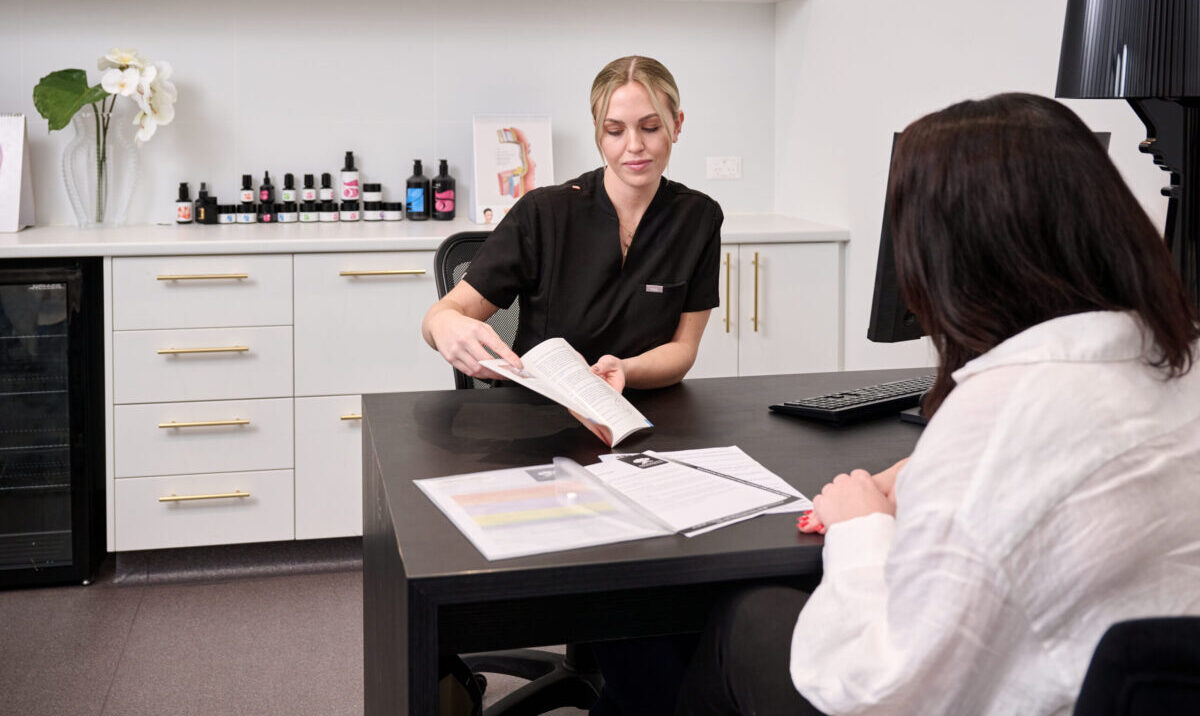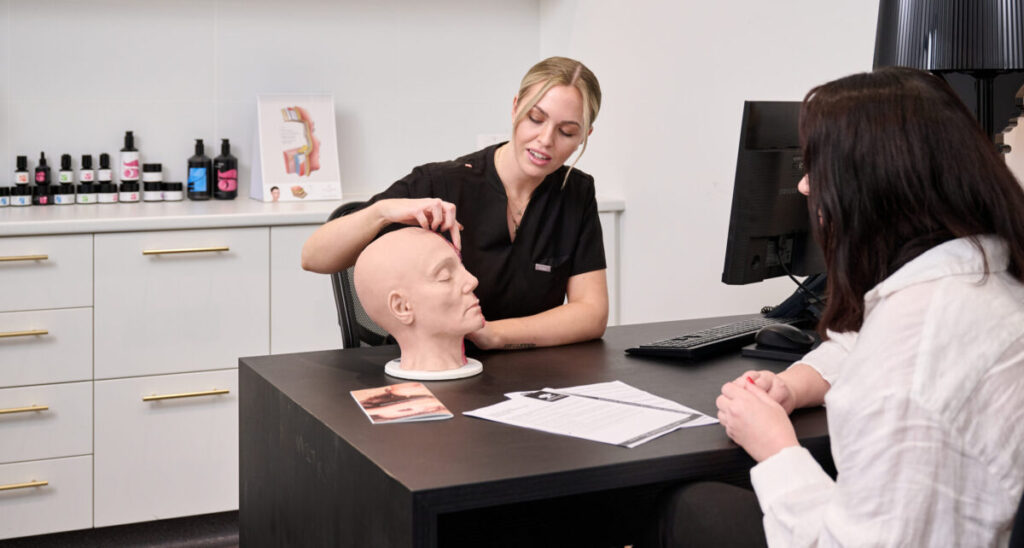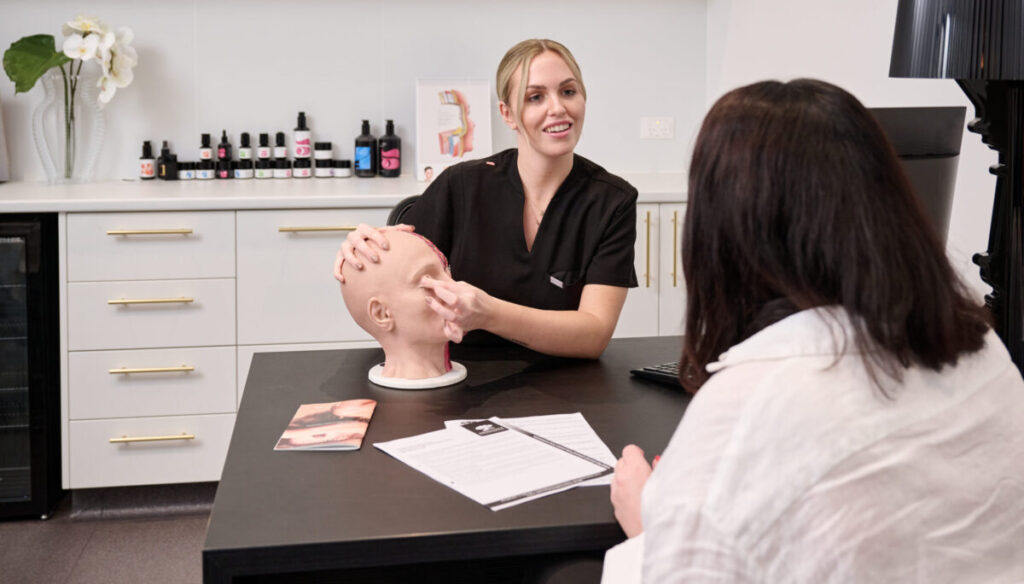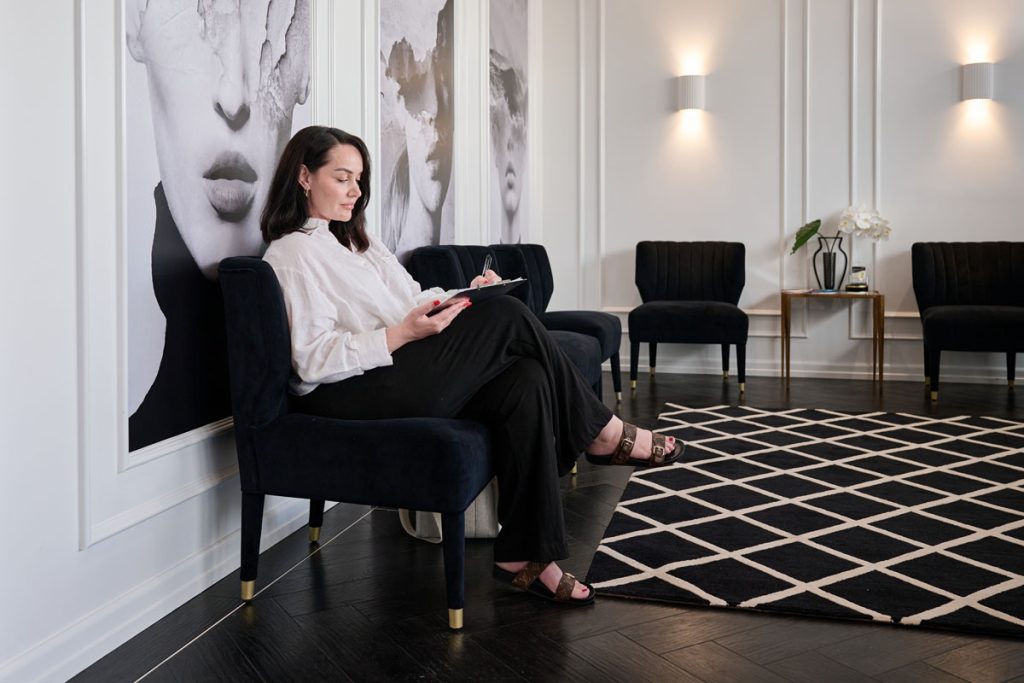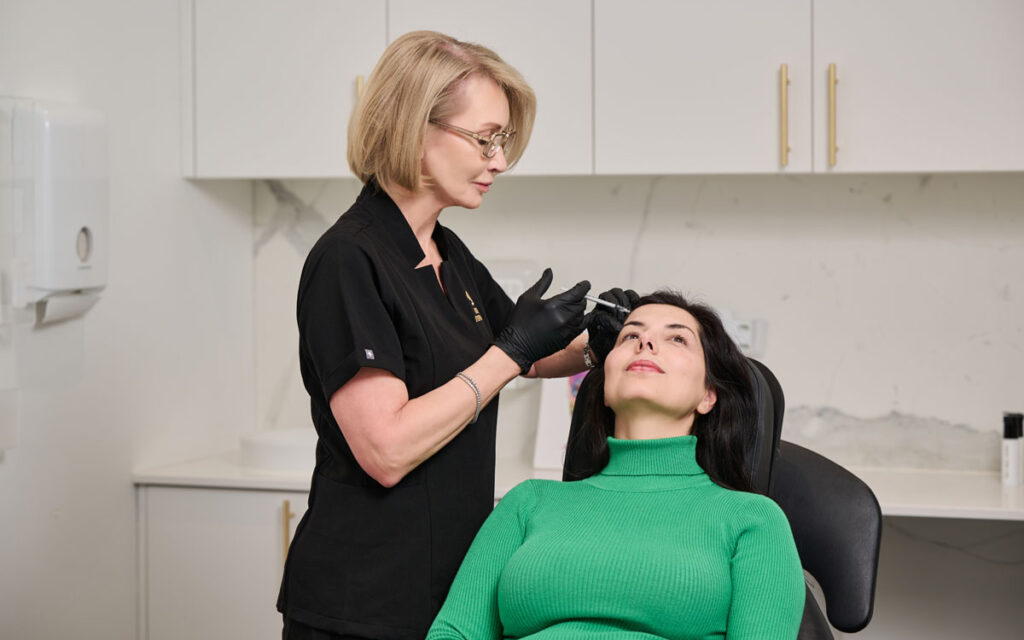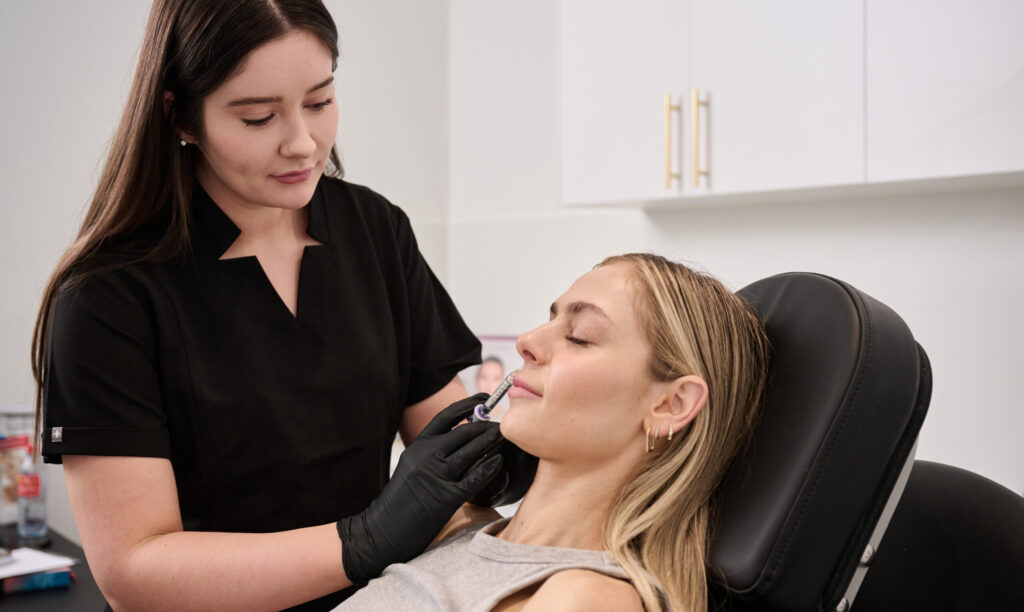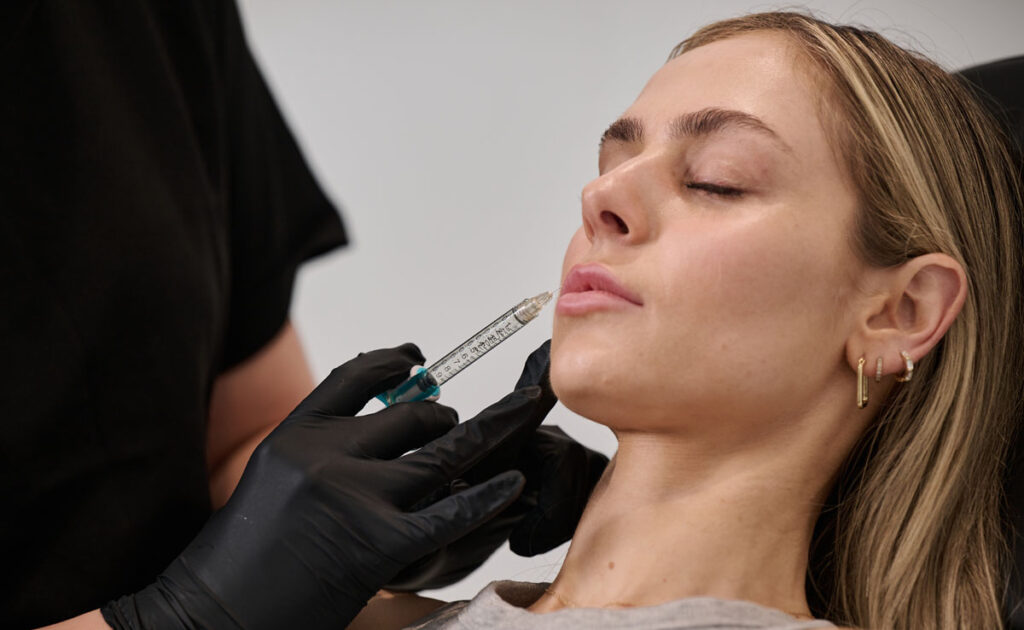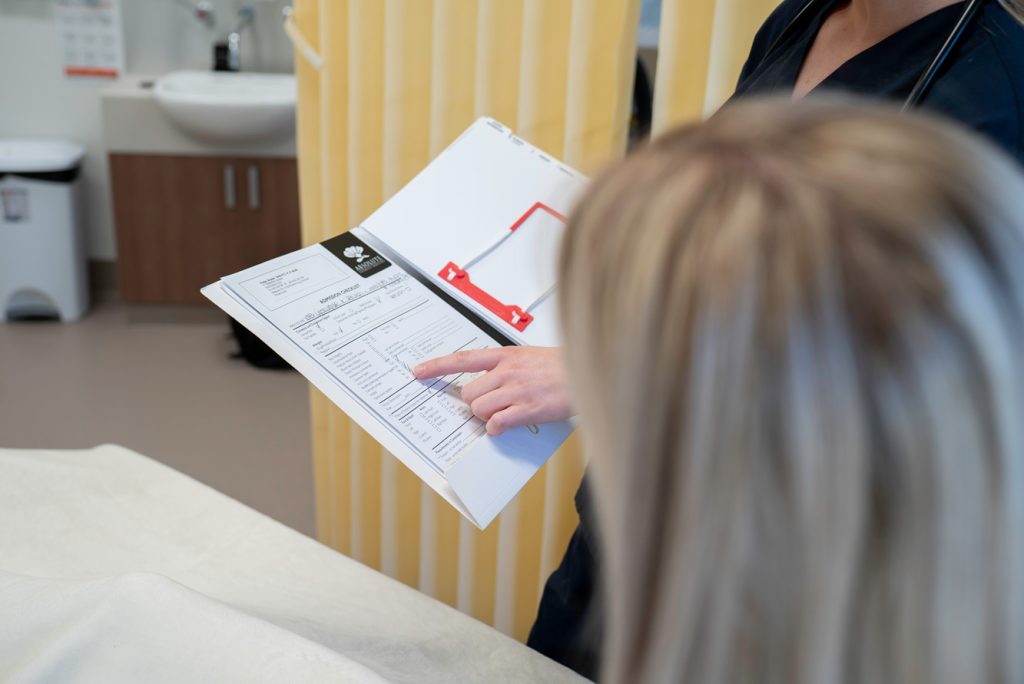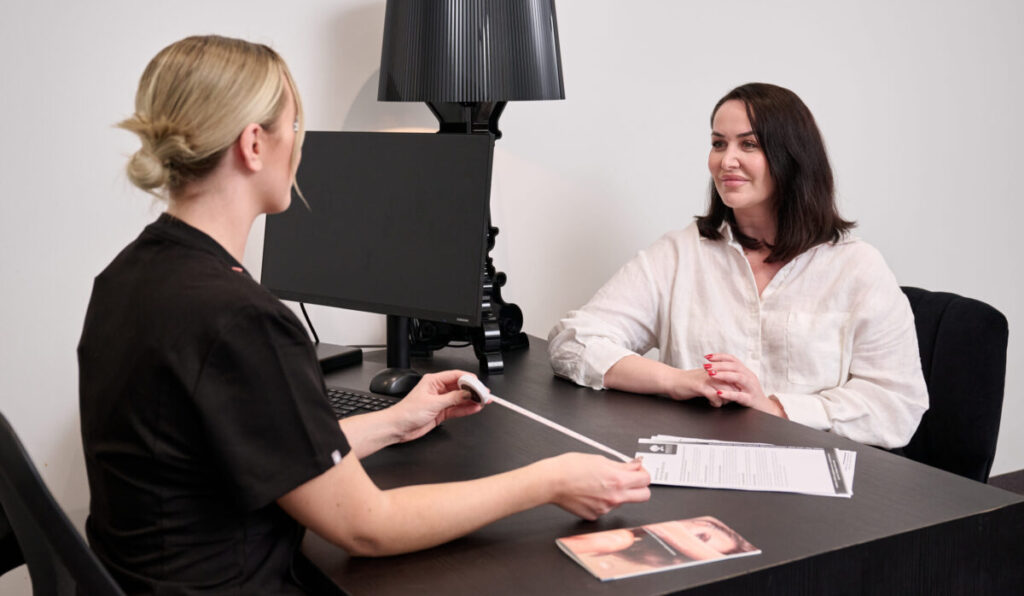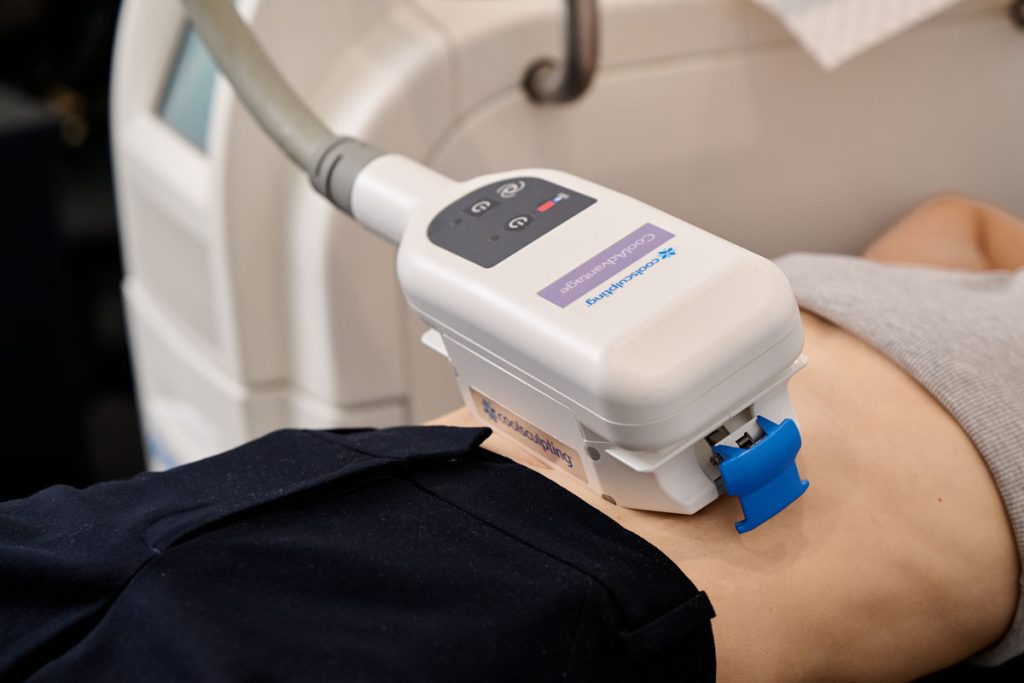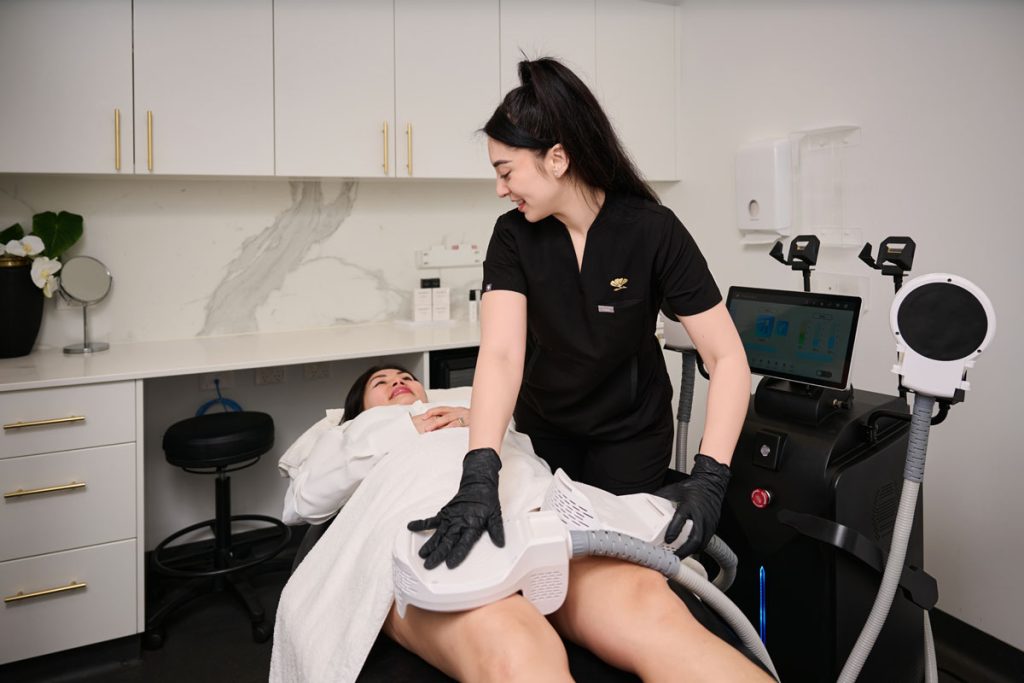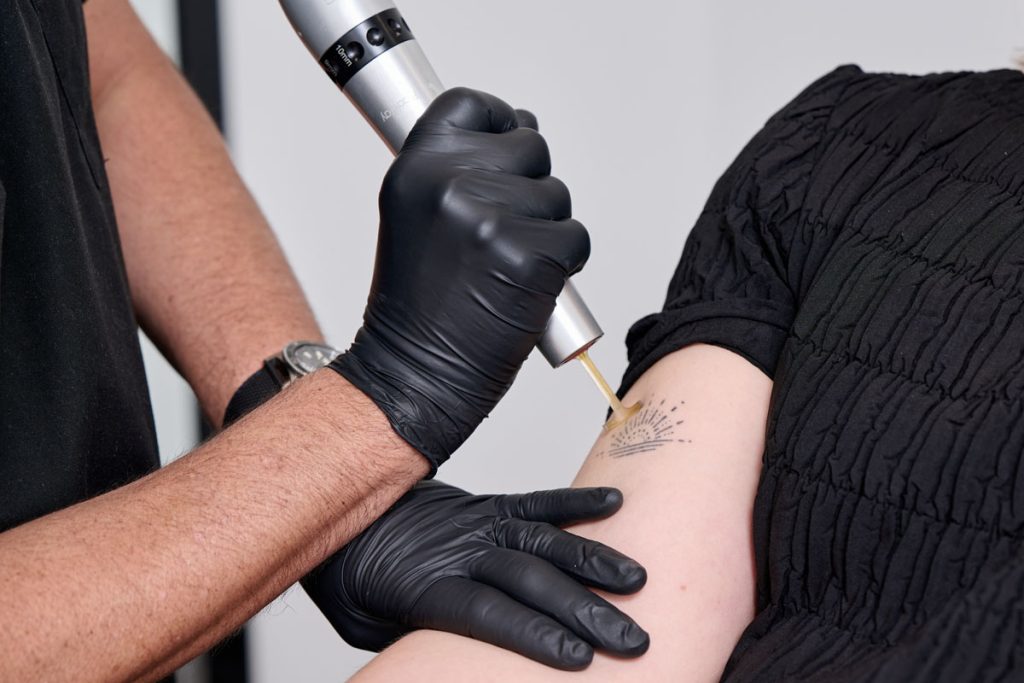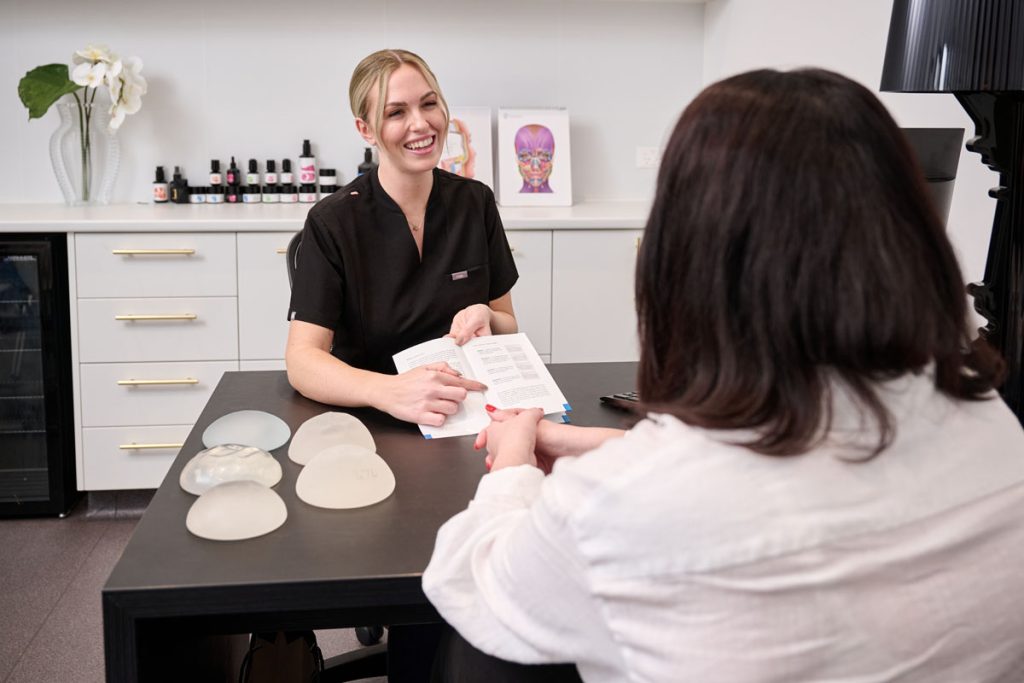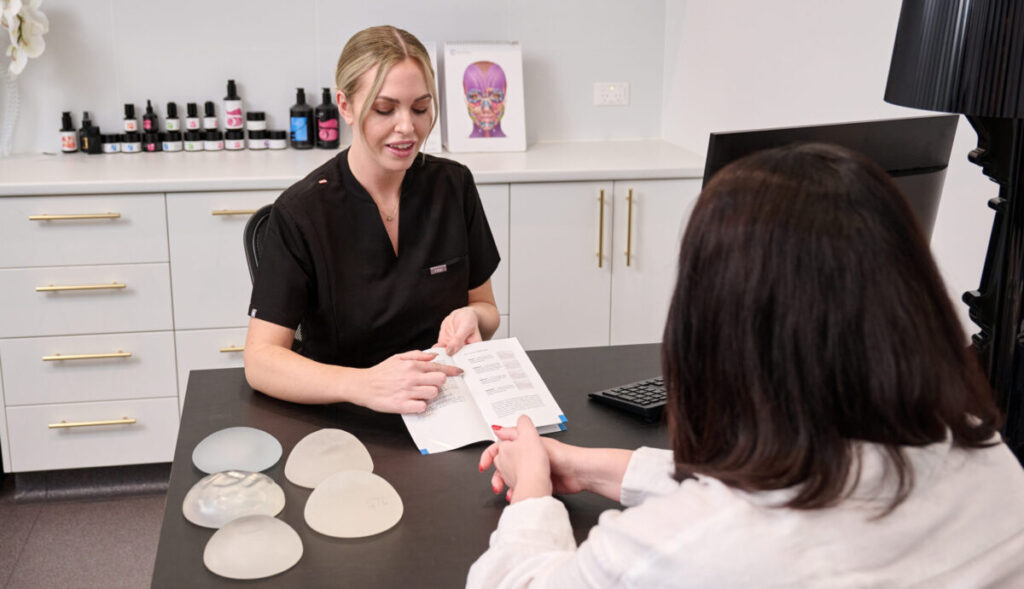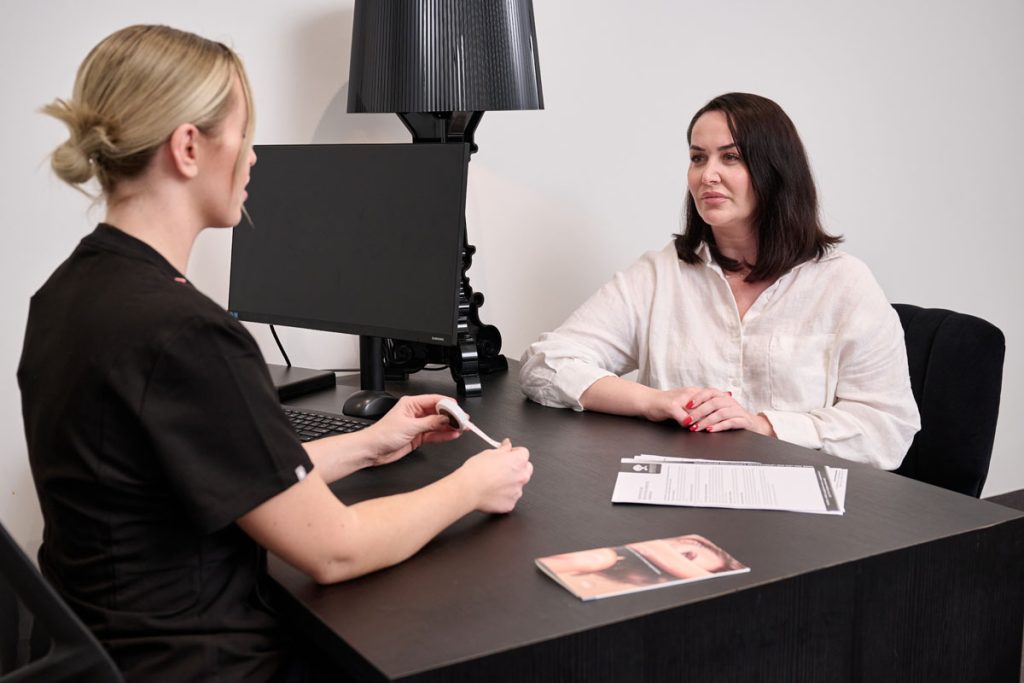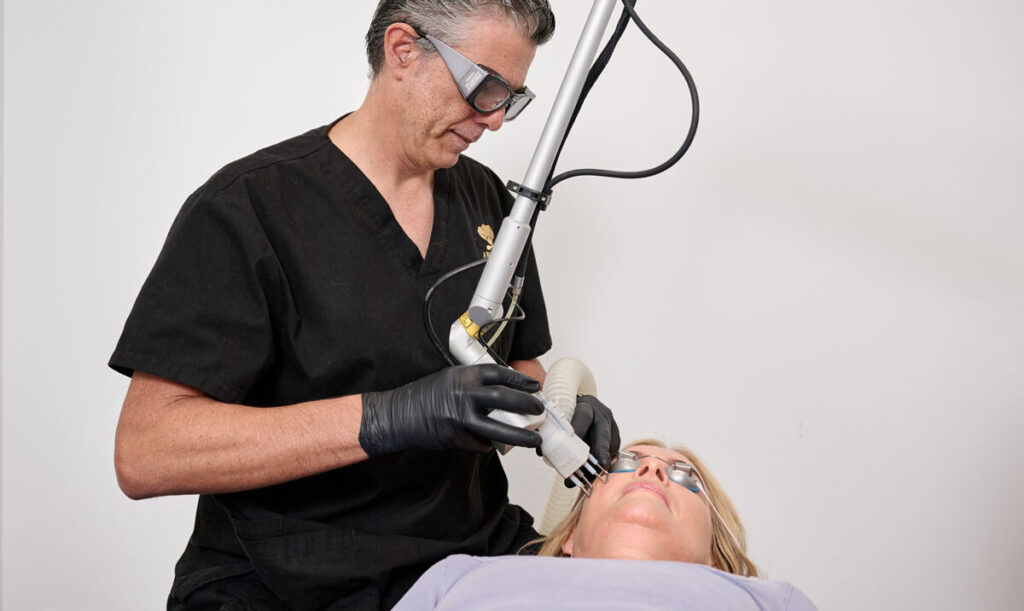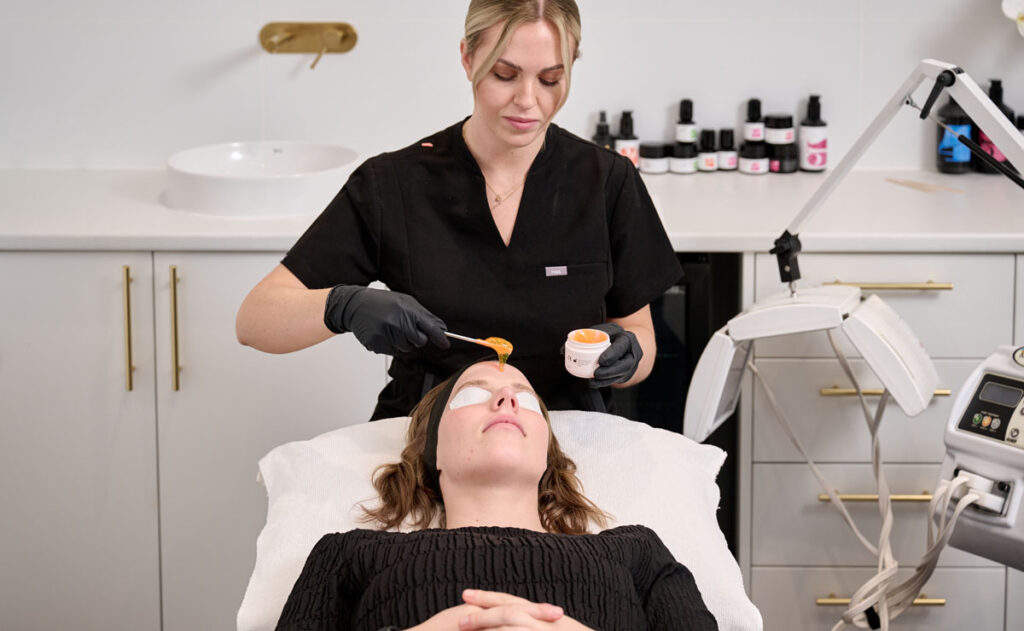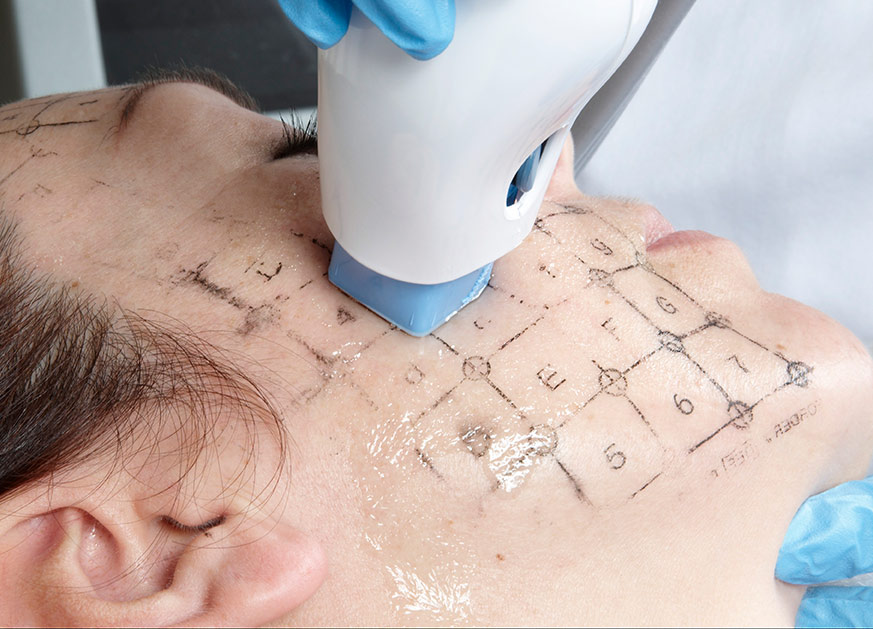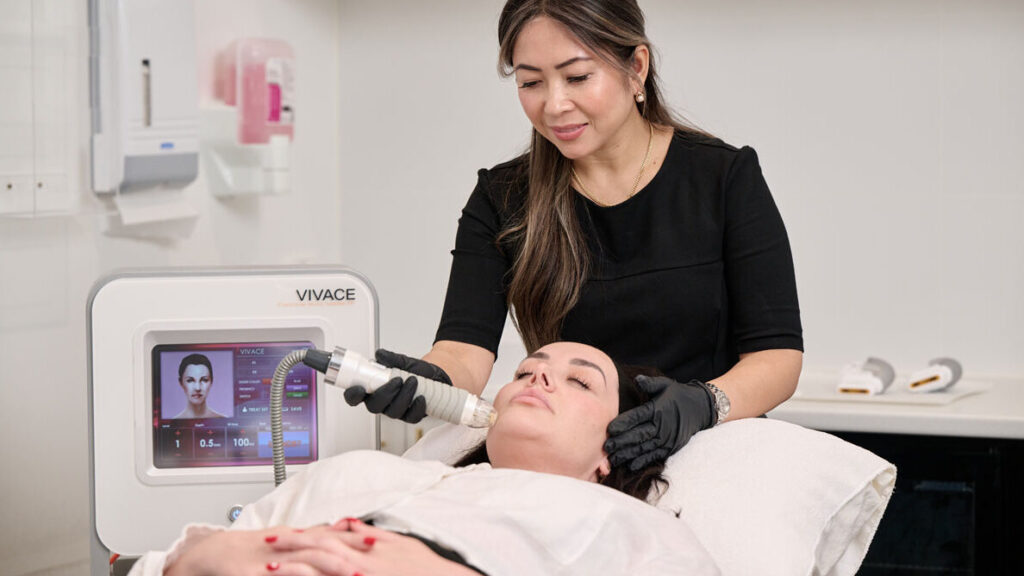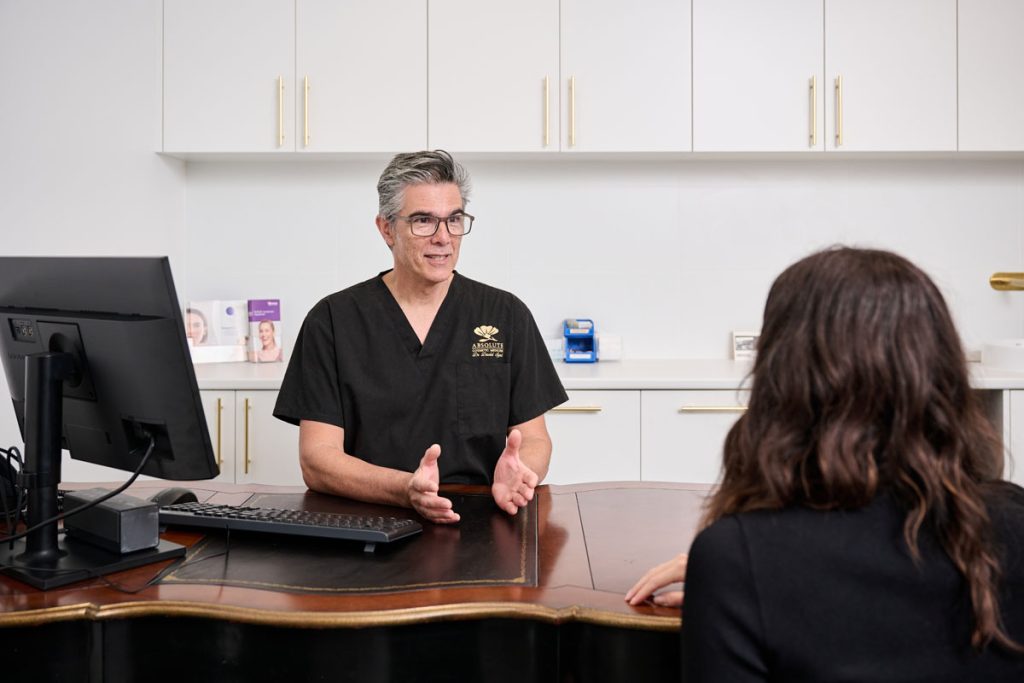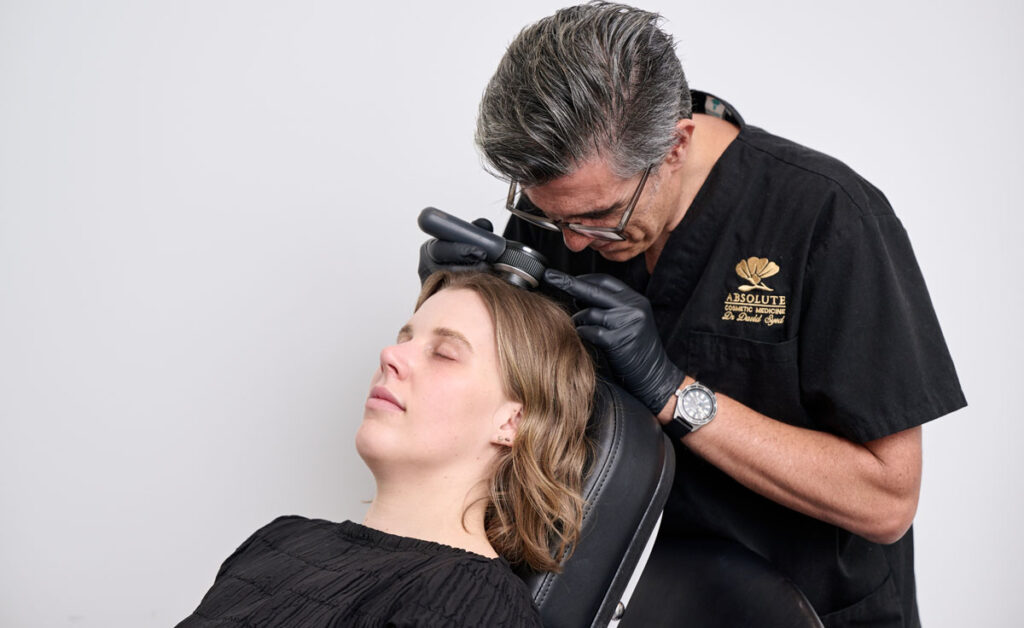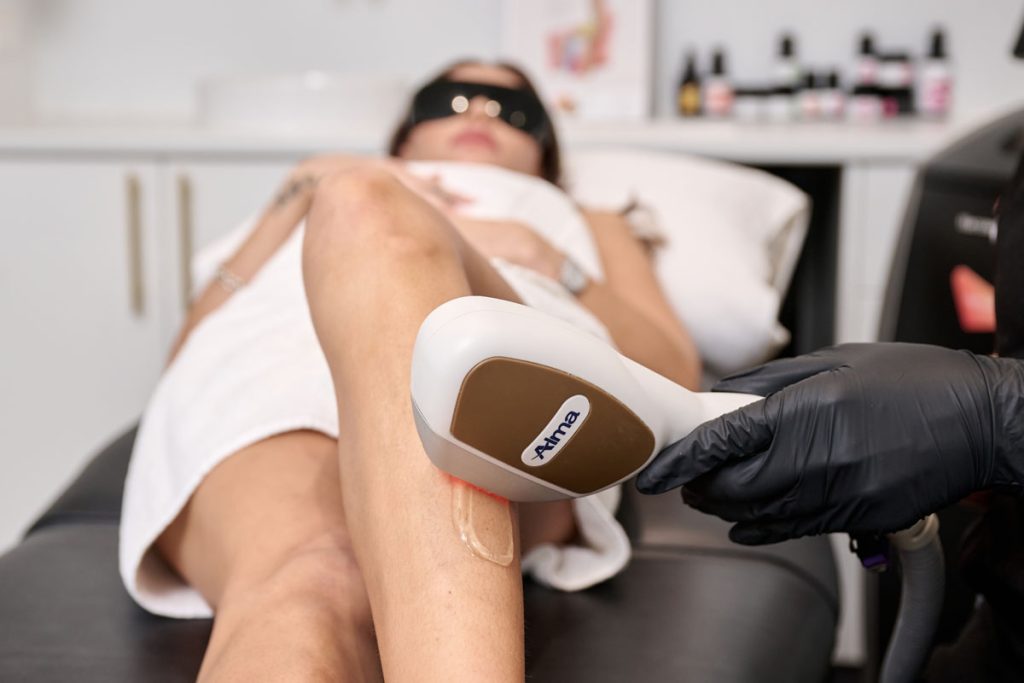When patients say that their threads feel “pinchy,” this can be the body’s natural response to the needles used to apply the threads. Once the threads are inserted and the excess skin begins to tighten, this can cause temporary discomfort and a pinching-like sensation.
Due to our daily muscle movement and the different contours of the face, the threads can shift from their original placement. This can result in the threads poking out of the skin, and it is usually resolved by coming into one of our clinics, where we can trim the protruding thread.
If you feel that your compression garment is causing discomfort or swelling, you can always reapply it, ensuring that it is on correctly and comfortably. Sitting up while sleeping can help elevate the affected area above the level of the heart, which in turn can also help reduce swelling by promoting drainage of excess fluid.
Applying ice to the area can help alleviate swelling by constricting or narrowing the blood vessels. This constriction reduces blood flow to the affected area, which can help limit the amount of fluid that accumulates in the tissues. Applying Ice also reduces inflammation by slowing down the activity of inflammatory cells and enzymes in the affected area.
Antihistamines can also be used when swelling is present. Antihistamines compete with histamine when binding to histamine receptors on cells throughout the body. By occupying these receptors, antihistamines prevent histamine from causing its effects, including the dilation of blood vessels and the leakage of fluid into tissues, which helps to reduce swelling.
Scratching your skin after having Erbium Laser – whether it’s accidentally and/or while you are asleep can be a response to the skin feeling itchy. Itching can be a normal part of the healing process as the skin undergoes changes in response to the laser treatment.
As new skin cells regenerate and the skin repairs itself, itching may occur temporarily, which can result in the patient accidentally scratching the treated area. This can cause redness and bleeding post-procedure, which can disrupt the skin’s healing process and potentially cause complications such as infection or scarring.
Dr Murray recommends wearing soft cotton gloves to bed, which can help prevent the skin from irritating itself overnight. It is also recommended to take Antihistamines. These are commonly used to relieve itching, and they work by blocking the action of histamine, a substance in the body that causes itching, among other allergy symptoms.
If you have noticed any lumps and/or swelling present after having filler, Dr. Murray may recommend for you to massage your lips from the middle outwards in a pinching motion, this can help distribute the filler evenly and promote circulation in the area. The injection process itself can cause a mild inflammatory response, which can lead to swelling. This is a normal part of the healing process as the body reacts to the presence of a foreign substance.
You may be asked to place a wrapped ice pack or cold compress on your lips for about 10 to 15 minutes at a time to also assist with the healing process. Avoid applying ice directly to your lips without a barrier, as this can cause irritation or possible ice burn.
Reviewing by a doctor or nurse two days post-treatment can help you achieve the best results possible and answer any questions or concerns you may have.
Using an ice pack on the skin for extended periods of time can result in marks. These marks, also known as ice burn, occur when the skin becomes too cold and the water in the cells begins to freeze. When these cells freeze, they can damage the skin tissue, restrict blood flow, and constrict the amount of oxygen being delivered to the area.
We can avoid ice burn by wrapping a tea towel around the ice pack to create a barrier between the skin and the cold source and using the 20/20 method – apply the ice pack to the skin for 20 minutes and remove the ice pack for 20 minutes. The 20/20 method will help prevent overexposure to the cold and reduce the risk of ice burn.
Depends on the individual and how long you usually swell afterwards, so 2-7 days. Ice for half an hour three times a day up to half an hour on and off. Due to the combination of genetics, environment, and individual factors, everyone is different when it comes to the time frame of how a person’s body responds to inflammation. People may experience swelling for 2-7 days.
Using ice packs can limit inflammation and alleviate swelling, by applying ice for about 15-20 minutes at a time, several times a day can help reduce swelling and promote healing. It’s essential to give the skin time to recover between ice sessions to avoid ice burns.
Book a Consultation
Book NowAny questions?
Dr. Glenn Murray (AHPRA Registration MED0001196978) Registered Medical Practitioner. General disclaimer: Patient outcomes can vary due to factors such as... genetics, diet, age, exercise, lifestyle, weight, and overall health. It’s essential to understand that all invasive surgeries come with inherent risks and require a recovery period and specific care regimen. Detailed information regarding surgical risks and complications is available here, but it is advisable to conduct thorough research and obtain a second opinion to ensure you are able to make an informed decision. Please note that the information provided is general in nature and does not constitute medical advice or establish a doctor-patient relationship. For real patient images, please visit our Before and After page. Please be advised that surgical outcomes vary, from patient to patient, and comprehensive research is crucial before making any decisions. This website contains imagery which is only suitable for audiences 18+.
